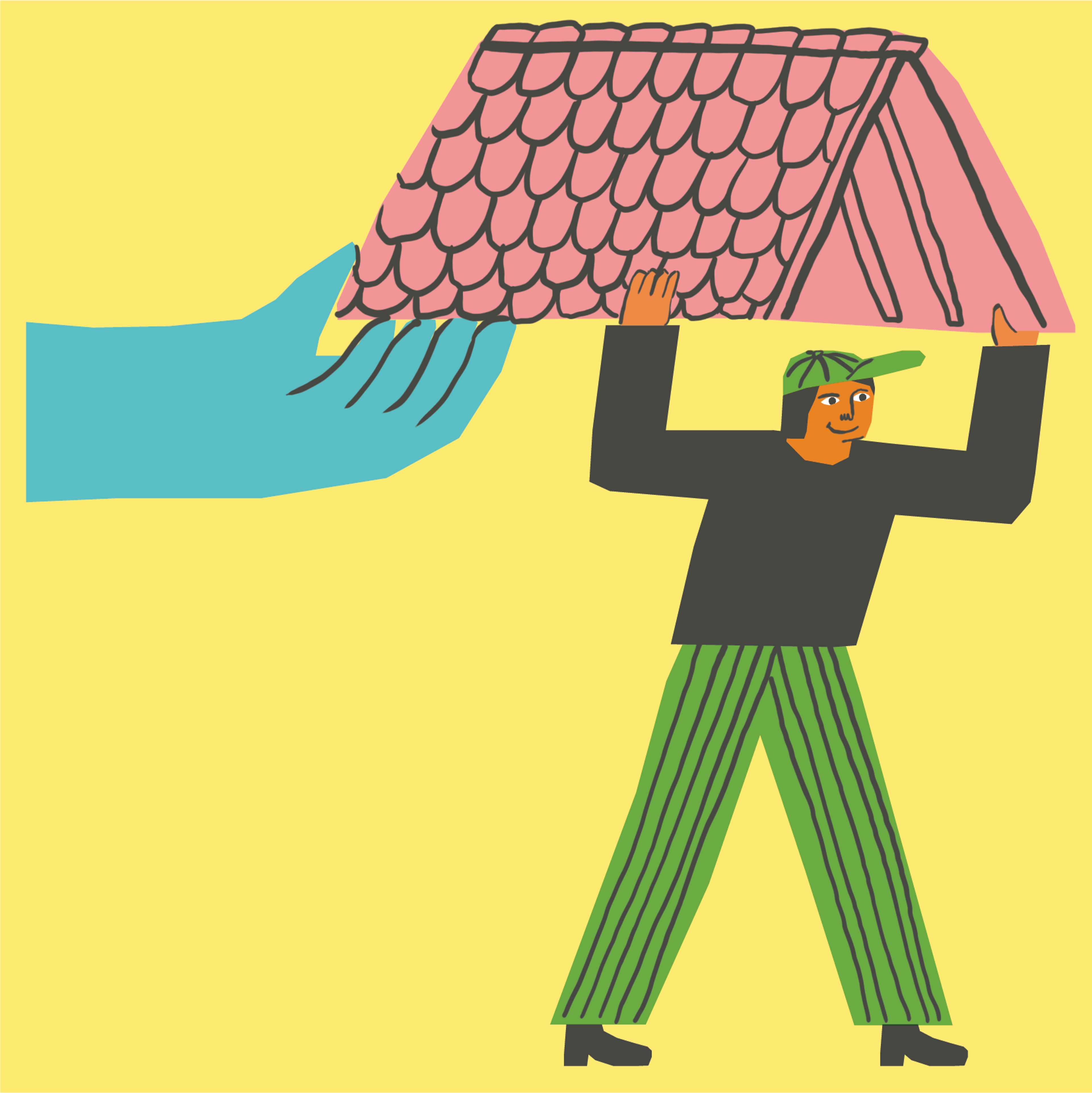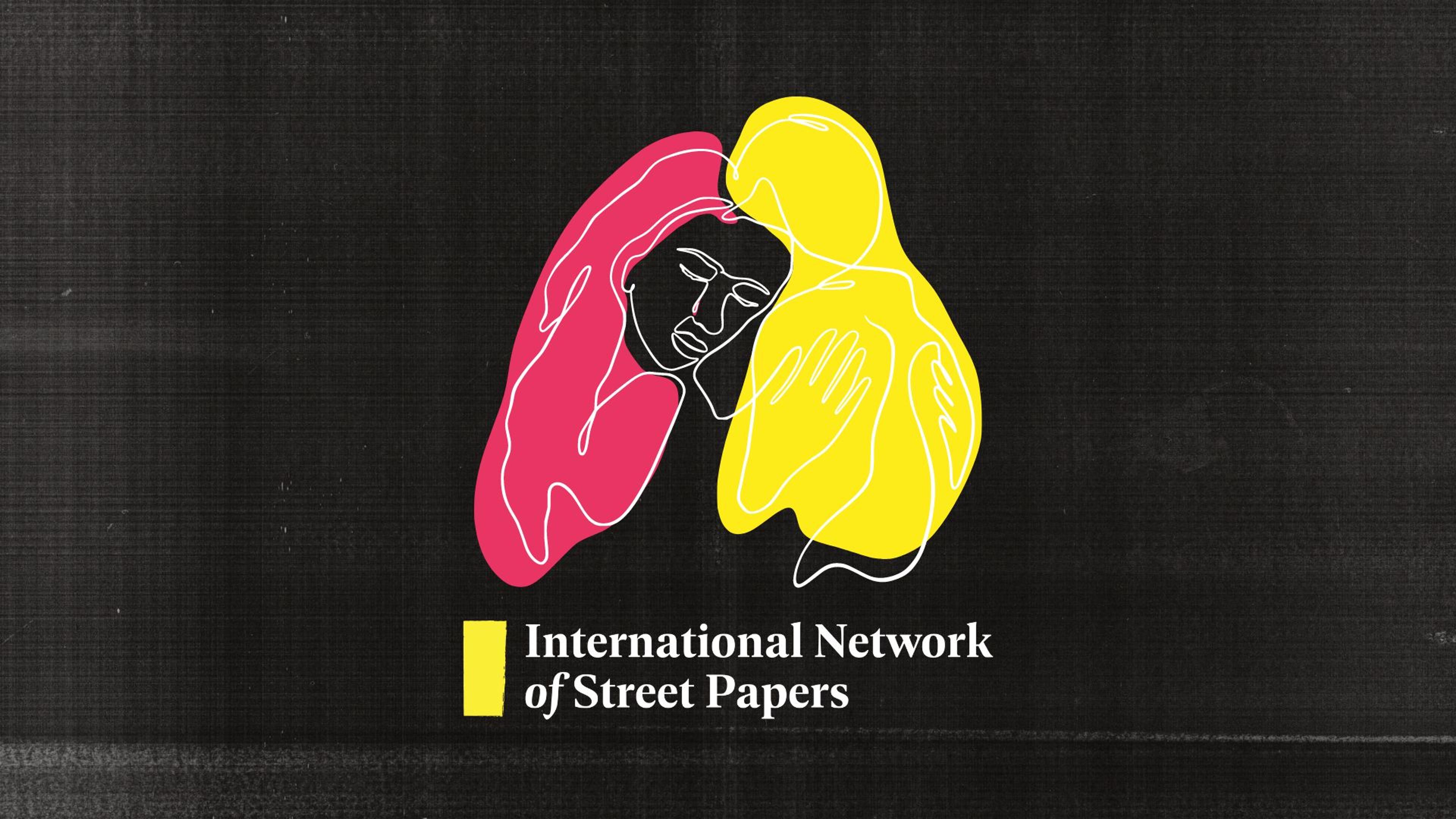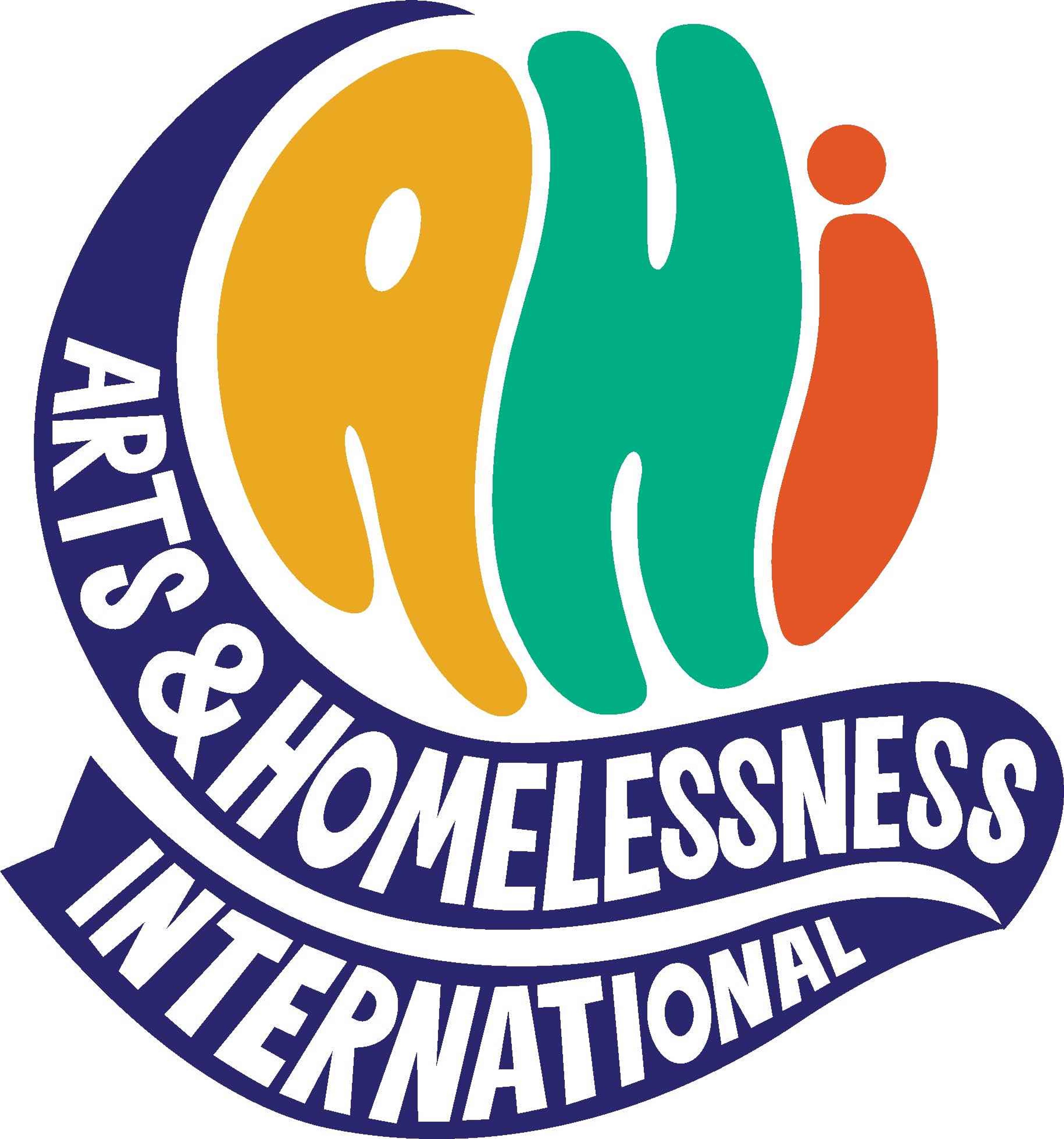Scotland enshrined the right to free period products into law – the cost of living crisis has made it even more essential
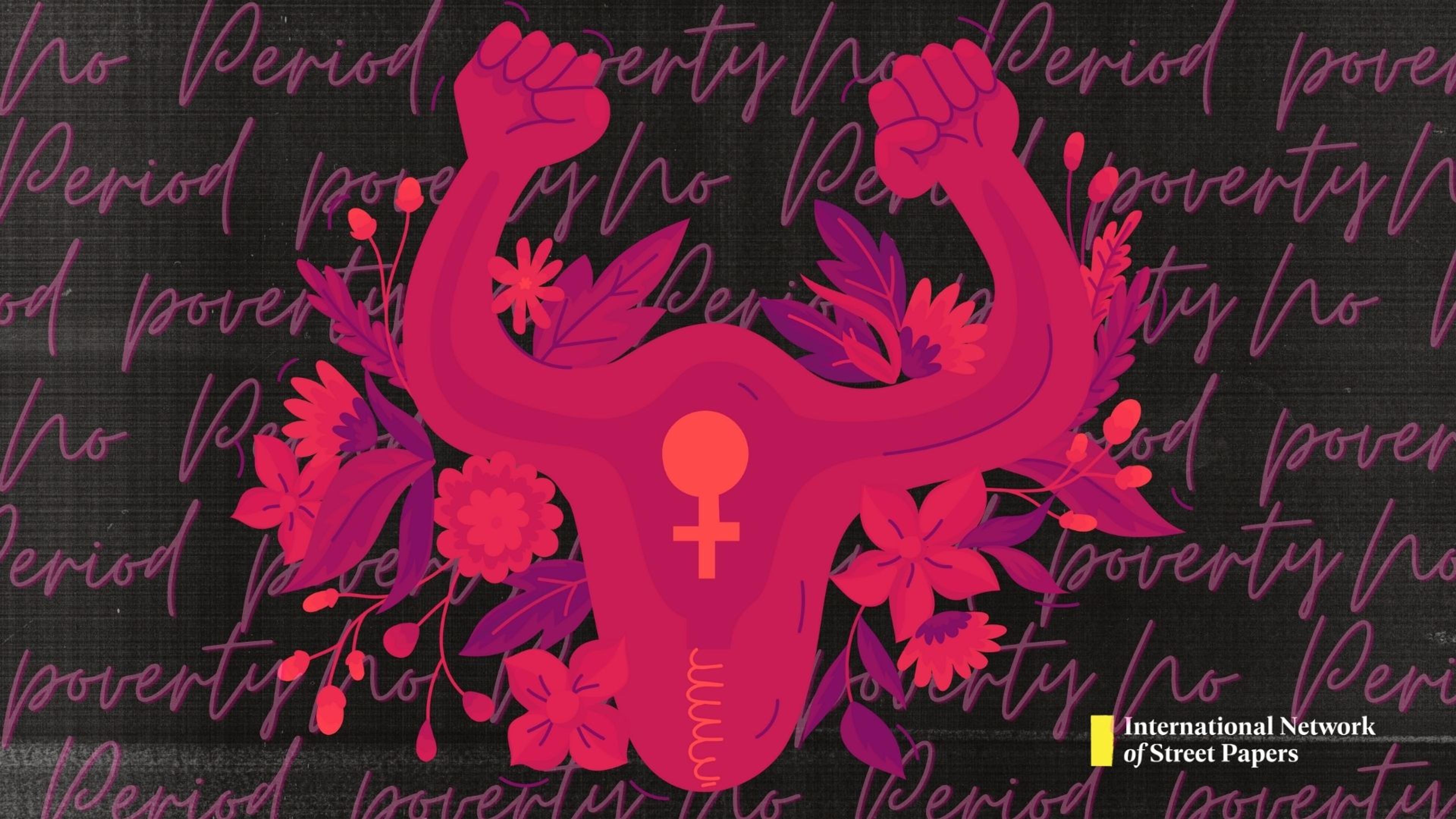
By Hannah Chanatry
- News
As of August 2022, groundbreaking legislation that made Scotland the first country in the world to establish a legal right to free period products nationally came into force. Ahead of International Women’s Day, INSP explored the impact of the policy to examine whether pathways to free menstrual items had been opened for society’s most vulnerable women, and how the cost of living crisis has affected the rollout.
Just after 5.30pm on a Monday, the stand meant to hold free period products at the Edinburgh Central Library was empty.
It wasn’t unusual – in fact it’s become somewhat of a routine. Ania Les, a part-time library employee who’s taken charge of restocking the products, said she always needs to refill the stand after the weekend, and products usually only last a few days.
“They’re very popular,” she said, scrolling through the form she sends to the Edinburgh council to order in bulk at least once a month.
Les said the library has stocked pads, tampons, and some reusable products for a few years now, but demand has increased noticeably since Scotland passed the law that made period products freely accessible to everyone.
The overarching goal of the law is to reduce “period poverty,” a phrase often used to describe the scenario when people can’t access menstrual products due to cost or social barriers. So far, it appears to be having a positive impact: charities that support people experiencing poverty or homelessness say they’ve seen progress in improved access and education. However, those improvements can be inconsistent, and the system is showing growing pains amid the cost of living crisis.
Claire Longmuir, head of policy and practice for harm reduction at the Simon Community Scotland, said her organisation has been committed to making sure people who can’t always afford products know what they are entitled to under the policy.
“I actually think there’s quite good reach in terms of ensuring that people have access to products,” she said. The organisation has also distributed different products across its location, to make sure they are available in places where the people they work with are already comfortable.
Scotland was the first country in the world to establish a legal right to free period products nationally. After a transition period following its passage, the policy took full force last August. It directs councils to provide a range of options - including pads, tampons, menstrual cups, reusable liners, and forms to order period underwear - in public buildings. Many of those spaces, including schools and libraries, had already started offering free products on their own following extensive campaigning from organisations like Hey Girls, a social enterprise that sells and donates plant-based sanitary products.
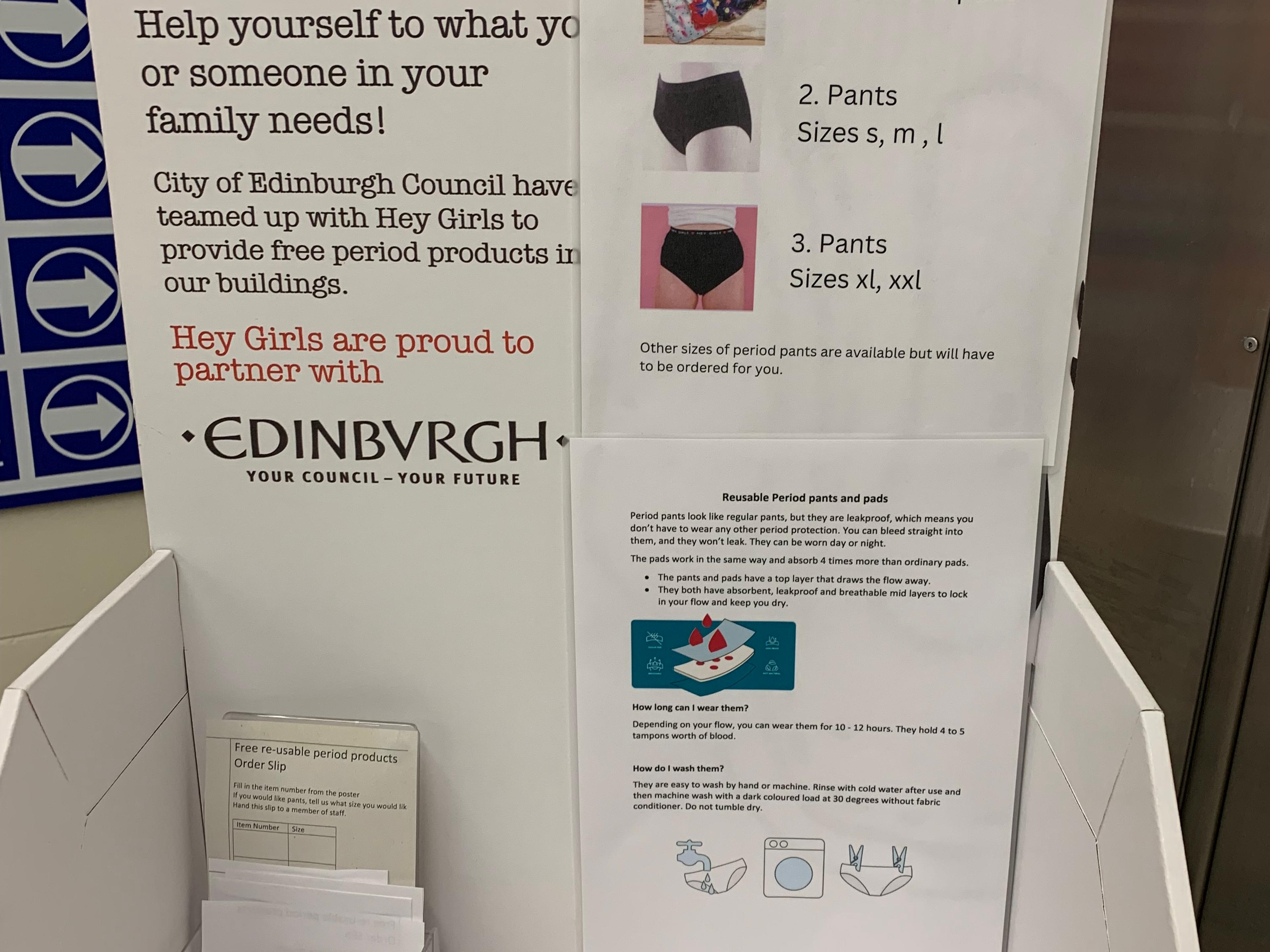
A stand usually filled with free period products lies empty in an Edinburgh council building. Photo by Hannah Chanatry.
Celia Hodson, founder of period poverty social enterprise Hey Girls[People] started to dip into their savings to pay for electricity, gas, petrol, food. You know it’s just an increasing squeeze. So I am really worried about what that means.
“In terms of a policy shift, it was pretty quick,” said Celia Hodson, founder of Hey Girls. Hodson started the company with her daughters based on her own experiences with poverty and struggling to access period products. Hey Girls now holds a government contract to supply products to councils, including those found at the Edinburgh Central library.
“I mean you’re turning the angle of a supertanker to do this, not what they used to do - that was phenomenal!”
Hodson echoed Longmuir and other advocates in highlighting the law’s positive impact. The number of places where you can pick up products has exploded; a free app that allows people to search for products based on type and location now has more than 2,000 entries across Scotland. The app is also searchable by whether products can be found in all-gender or gender-neutral bathrooms; the law itself was designed to be trans and non-binary inclusive.
The impact of the law has also shifted policies internationally. Since the law first passed, several other countries have pursued similar policies, with Northern Ireland seeking a law establishing free products, and the UK and New Zealand rolling out free products in schools.
Several countries also lowered or eliminated the VAT tax on period products, including in Colombia, Australia, Nigeria, and Kenya, which already had free products available in schools.
But there also appear to be some gaps and growing pains in how well people are able to access the full system in Scotland.
Scrolling through the PickupMyPeriod app, it’s clear not all products are available in all places; some people may find their options limited based on where they live, the timing of when the places near them are open, and the available stock.
Celia Hodson, founder of period poverty social enterprise Hey GirlsIn terms of a policy shift, it was pretty quick. I mean you’re turning the angle of a supertanker to do this - that was phenomenal!
And running out of stock can be a harder problem to solve now than it was when the policy was first being tested.
“There are some problems with ordering,” said Les, the library employee, since the rapid expansion of places supplying products through council partnerships. At first refills of products could be turned around within a couple days, but with increased demand, “now it takes six or eight weeks, you have to plan it well.”
Les says the library has been waiting on a refill of tampons for several months.
That increased demand is expected to get even higher as the need for free products increases in the cost of living crisis. Recent analysis from Citizen’s Advice Scotland found nearly half of adults in Scotland are cutting back on household spending, including 15 per cent who said they are reducing spending on toiletries and sanitary products.
“[People] started to dip into their savings to pay for electricity, gas, petrol, food,” said Hodson. “You know it’s just an increasing squeeze. So I am really worried about what that means.”
Specific concerns for sanitary products is getting national attention. MSP Monica Lennon, who spearheaded the law, raised the issue with First Minister Nicola Sturgeon at a weekly First Minister’s Questions in early February, requesting a meeting with Scotland’s social justice secretary.
In response, Sturgeon agreed that members of the Scottish Parliament should be proud of the work they had done to pass the law, and seek out ways to collectively build on its success.
Support our News Service
We believe journalism can change lives, perceptions, and society - underpinning democracy for a more equitable world. Learn more about the INSP News Service and how to support it here.
